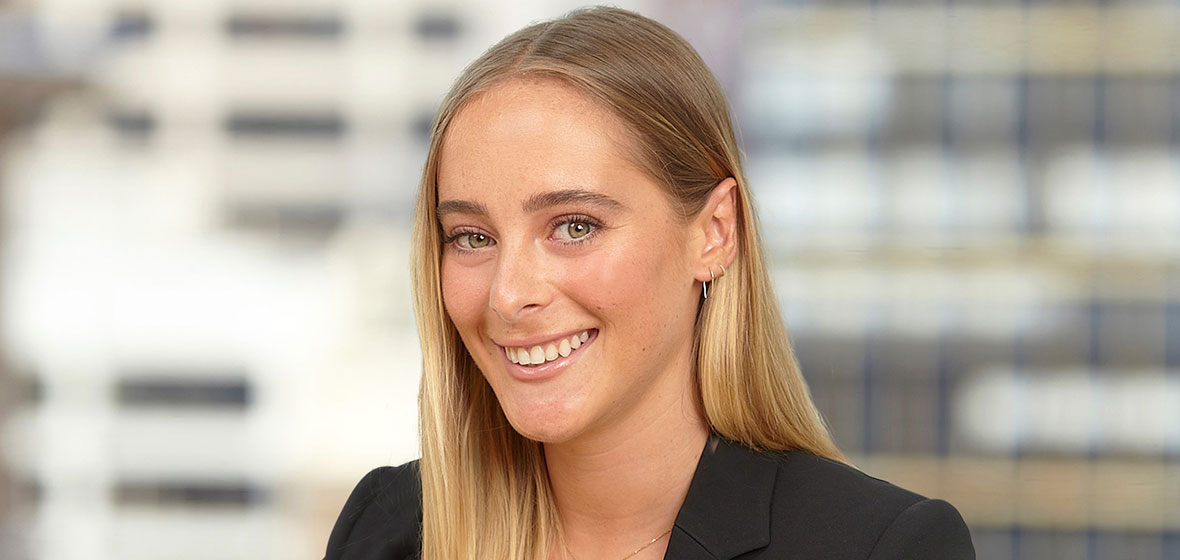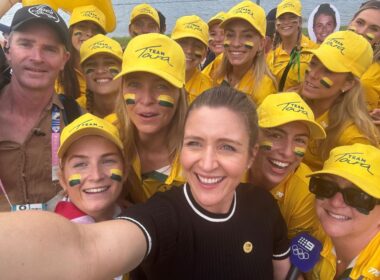Few people find their calling in their final year of high school, but for Georgia Schulberg, a conversation with a family friend over dinner would lead her on a path into the legal world, to new continents, and defending victims of cybercrime.
Today, she is a Senior Associate at Clyde & Co.’s London office on their cyber team. Georgia talks to LSJ about her career, the challenges of practising law and navigating the unspoken rules in a foreign country, and the importance of staying connected in the profession.
The thing that stands out as critical when beginning to practise law in a new country is about learning the stuff that you can’t simply read up on.
What inspired you to pursue a career in law?
I was in my final year of school, and it was the week we had to submit our preferences for university courses. I had no idea what I wanted to study, tossing up between graphic design, architecture, law, accounting, and more. My parent’s friend was over for dinner that night – he happens to be a very successful criminal barrister who I have always looked up to and loved hearing stories from.
We spent the entire dinner tossing up different degrees and professions, and by the end of the night, my parent’s friend had managed to debunk my fear of bulky textbooks and convince me to submit Law as my first preference. I remember him saying ‘I really think you will love it. Just give it a try, and if you don’t enjoy it you can transfer to something else.’
It’s now 10 years on, and I’m still here!
What are the key differences between practising law in Australia and in the UK? Are there any differences in the qualification process?
The key difference that I notice in my day-to-day practise is the scope of jurisdictions in play. In Australia, we often deal with global clients. In the UK, however, it’s not just often, it’s always. Every client in the UK has some sort of connection or operation in Europe, which brings into play an extra layer of complexity and consideration to each interaction and advice.
Coming from Australia, it’s not always necessary to get qualified in the UK. In my case, I am lucky to be able to practice as foreign lawyer which means I don’t have to worry about any of the conversion exams or paperwork in the UK.
What skills do you think are needed to practise law overseas?
The technical skills carry the same weight no matter where you are. The thing that stands out as critical when beginning to practise law in a new country is about learning the stuff that you can’t simply read up on.
For me, this is about identifying the unwritten politics and dynamics that sit around the local law. For example, how to approach a specific regulator, or how to phrase something in a way that won’t agitate the regulator. These nuances can’t be learned from reading a textbook, but once you get them right, they will enable you to add colour to your advice and look like a local expert (even if the accent suggests otherwise).
This idea of the unwritten dynamic also feeds into communication. It seems like an obvious one, but being in a new country can expose you to different accents, jargon, body language, and humour, which can present challenges when it comes to communicating with both colleagues and clients. I have found it is important to observe the way people communicate and interact and adapt my own communication style to avoid a clash or misunderstanding.
Talk us through a typical day.
I try to get online quite early in the morning UK time, so I can catch the last few hours of the Australia workday to connect with my colleagues back home. People tend to start their workday a bit later in London, so I usually have an hour or so of quiet time in the office before people start rolling in. Our London office has hot-desking, which means I’m often sitting next to someone new – this has been a great way to meet people!
We have a cafeteria in our office, which means the team often goes upstairs to get lunch together. There are also great food options and street markets nearby, so we try to coordinate a lunch excursion to a new spot each week.
By the afternoon, all my Australia teammates are fast asleep which means I have a few uninterrupted hours to smash through my work and of course, any good London workday must end with a beer at the pub (and there are about 4 within a 30 second walk of our office)
Tell us about the cyber team and what you do?
Our team is focused on cyber readiness, response and recovery.
The most exciting part of the job definitely comes with the ‘response’ category – that is, assisting organisations that have experienced a cyber-attack and guiding them through all the challenges associated with containing the incident, investigating what happened, managing stakeholders, and of course addressing legal and regulatory obligations.
I have been fortunate to work with a massive range of clients, on pretty much every type of cyber incident you could think of – everything from email phishing incidents, misdirection of multi-million-dollar funds, insider threats, and catastrophic ransomware attacks. In the pro-bono space, I regularly assist victims of cyber scams and online crime to chase fraudulently misdirected funds and in the last few years, have successfully assisted individuals and organisations in recovering several million dollars.
Separately, after a number of years of minimal readiness activity, over the last 12 months we have seen a sharp uptick in clients wanting to be better prepared to respond to a cyber-attack. It’s not about ‘if’ a cyber event will happen anymore but ‘when’. Assuming this, we work with clients to reduce the severity of incidents when they strike. This can involve anything from workshopping written policies and procedures, to running cyber incident simulations, working with in-house counsel to map out contractual and regulatory reporting obligations, and presenting to Boards and executives on the cyber ecosystem and regulatory landscape.
How important is it to remain connected in the profession?
Connection and networks are everything. Trying to balance connections across two countries can be challenging, but there are certainly ways to leverage connections in one place to build connections in the other.
Many of the people I have met in the London legal market have been introductions from contacts in Australia – these warm introductions have been incredibly powerful in helping me build my profile and network UK.
On the flip side, reporting back to my Aussie contacts about a successful introduction based on their recommendation, helps keep up the connection with my network back home.
What are you most proud of?
I am most proud of the way I have embraced the opportunities that have come my way.
In my last year of university, I was approached with an opportunity to go on a 12-month secondment to an in-house legal team. I had never heard of anyone doing this before, but I weighed up my options and took the leap. From there, I had an opportunity to transfer to the company’s headquarters in Tokyo. I’d never been to Japan before, didn’t speak the language, and didn’t know anyone that lived in Japan, but off I went.
Upon returning to Australia, I was faced with an opportunity to join the cyber team at Clyde & Co. Although I didn’t really know what ‘cyber law’ meant, this was another one that I grabbed on to. And now, I find myself in London.
At the time of being faced with each of these opportunities, I was terrified. Each decision represented a very different pathway to what I knew as ‘normal’ – naturally, this attracted the fear of ‘what if I’m making the wrong decision’. In hindsight, these unconventional opportunities represent the best decisions I’ve made; the ones I’m most proud of.




